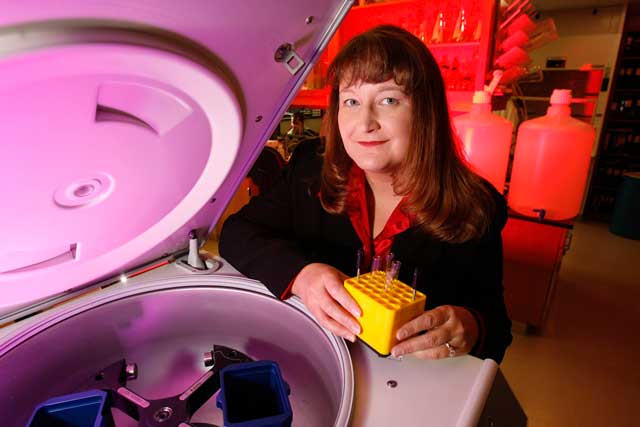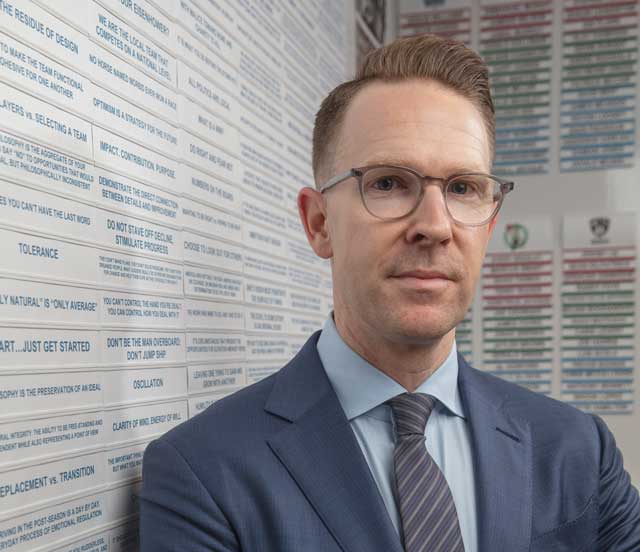The Pride of Pond Creek
Judith James, a triple threat in medical research, advocates for those suffering in rural America.
Tens of millions of Americans with one of 80 autoimmune diseases could not have a stronger advocate than a rheumatologist-microbiologist-immunologist from tiny Pond Creek.
Judith James began groundbreaking trials in 2016 with the Oklahoma Medical Research Foundation and secured a policy-making position with the National Institutes of Health, the federal government’s biomedical research arm.

Yet her grassroots in rural Oklahoma provide as much heft to her being one of the world’s leading researchers as her medical and doctoral degrees from the University of Oklahoma. One mission when she attends meetings on autoimmune diseases is to spotlight those suffering in America’s hamlets, villages and towns.
In November, James, professor of medicine at OU’s Health Sciences Center, was appointed to the National Institute of Arthritis and Musculoskeletal and Skin Diseases, a logical step from her landmark research into lupus, cited in more than 1,000 professional papers.
Rheumatoid arthritis runs in James’s family, and she saw firsthand how it could destroy the body. Her grandmother was one of four children from Verden (west of Chickasha); two escaped the disease’s ravages. A great-aunt and great-uncle did not.
“It was devastating to see how a disease could affect some in the family and leave others alone,” says James, noting that one in 12 Americans has an autoimmune disease, a leading cause of death in young and middle-aged women.
James’s great-uncle lived long enough to see her treat people with rheumatoid arthritis, lupus and other maladies, and “he used to always tell me, ‘You need to get back to work trying to cure this disease,’” she says.
On Sept. 1, James and the OMRF began the first U.S.-based rheumatoid arthritis prevention trial, followed three months later by the world’s first prevention trial for lupus. “My great-uncle and -aunt would be delighted that we’ve begun these,” says James, 49.
Growing up 20 miles south of the Kansas state line on her parents’ farm in Pond Creek (population 856), James knew as a youngster that she would become a doctor. After graduating from Pond Creek-Hunter High, she matriculated to Oklahoma Baptist University in Shawnee and received a bachelor’s degree in chemistry (with a minor in mathematics). As an undergraduate, she began working for OMRF.
From there, she went through OU’s specialized M.D.-Ph.D. program; she completed her medical residency in internal medicine and rheumatology and earned doctorates in microbiology and immunology.
In her role with the NIH council on arthritis and musculoskeletal and skin diseases, James will help to shape federal policy and funding and “provide input on priorities for the whole institute,” she says. “I will speak totally on behalf of patients, doctors and the people, especially from often overlooked rural areas. We need advocates for Oklahomans, and not just hear” from the East and West coasts.
According to the National Health Interview Survey, arthritis alone affects 52.5 million Americans (22.7 percent of the adult population); 22.7 million have limitations due to arthritis. This survey projects that 78 million adults will have arthritis by 2040 and 35 million of them will have some sort of debilitation.
James will speak freely and frankly because of “the escalating burden of arthritis on our population and workforce,” she says. “It may be several times before finding the right ears.”
And given her lengthy track record, James will be heard.























